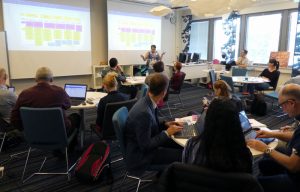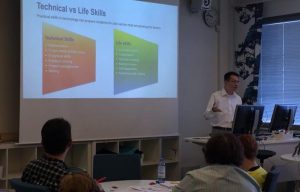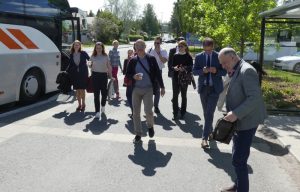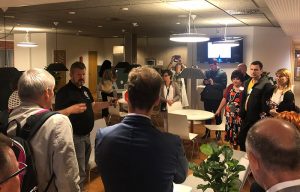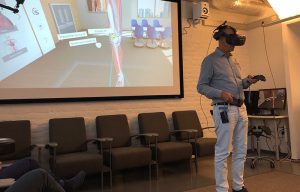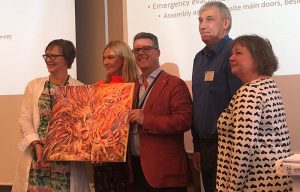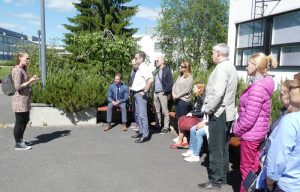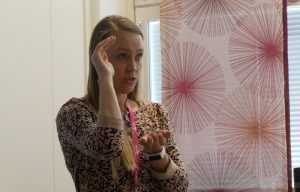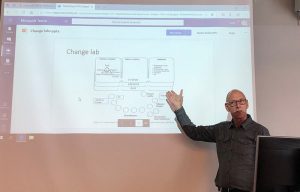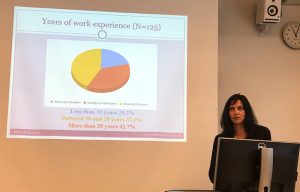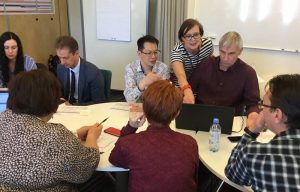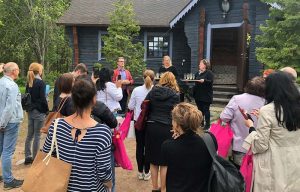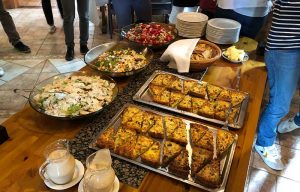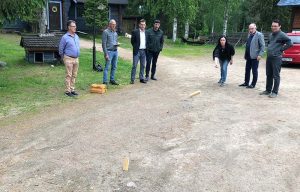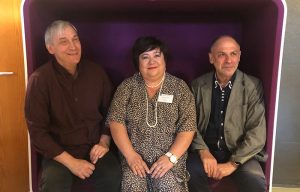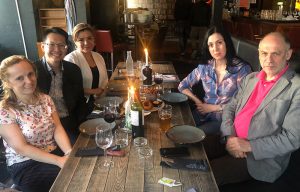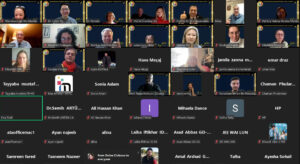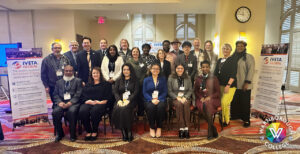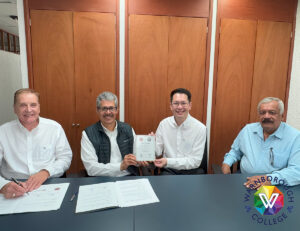The ERASMUS+ co-funded project working under the name ‘Pro-VET’ continued with its second transnational meeting in Jyväskylä, Finland. The intensive week of debate, discussion, strategic policies and training was hosted by JAMK University of Applied Sciences, who are also managing the entire project.
Pro-VET stands for the Professional Development of Vocational Education Teachers with European Practices and is a 3-year capacity-building initiative to upskill and develop target audiences in Russia and Serbia. Comprising a partnership of 12 universities (including Warnborough College Ireland), plus a series of industry partners.
In Jyväskylä, participants were welcomed by JAMK Vice-Rector, Mr Heikki Malinen, and RDI Director of the School of Professional Teacher Education, Mrs Hannele Torvinen. As per Finnish tradition, guests were treated to a summer fruits cake.
Project Manager, Graham Burns, set out the project aims for the week, before Eila Burns introduced the need to create learning diaries and blogs to reflect on the week’s activities.
Site visits to various schools such as POKE in Äänekoski and Gradia Educational Consortium gave participants an opportunity to experience immersion in the latest digital technologies for teaching and learning. Even JAMK’s own labs allowed for the visitors to try out virtual reality equipment for themselves. What was interesting was the Finnish schools’ commitment to learning by doing – students were given free rein to go out and experiment with equipment, set their own learning objectives and outcomes, and essentially learn by doing.
Throughout the week, various administrative duties had to be done including overall quality management of the project, discussion of the programme and what was going to happen at future meet-ups. The Serbian partners presented research data about their VET teachers identifying needs and gaps in knowledge and skills. Both countries also synthesised their findings into a digital learning matrix that was provided by Warnborough College. The data was then combined, reviewed and distilled into a digitalisation plan by Dr Julian Ng. Training sessions were provided by the Dutch Aeres University and Warnborough College Ireland on the necessary learning theories and frameworks which could be used to create modern teacher training tools for VET purposes. Dr Frank de Jong from Aeres managed to combine two separate learning models into a final simplified structure proposed by Dr Julian Ng.
By the end of the week, the overall mission of the project had been clearly defined, unambiguous training modules had been identified, and a structured training approach for future Change Labs in Tver, Wageningen, Bremen and Dublin.
It wasn’t all work, of course. In between sessions, participants caught up on gossip and friendships with each other, and spent time walking about the very pleasant city of Jyväskylä. For the final evening together, JAMK pulled out all the stops with a trip to a Kivitasku, a forest retreat some 15-minutes drive away. On a sprawling site set on a pretty lake, participants were treated to a sumptuous homemade meal with wine, and rich desserts, before partaking in a traditional Finnish sauna experience that involved jumping into the cold lake afterwards. While waiting to use the sauna, participants took turns playing mölkky, a traditional skittles-like game, and ball dodge-ems. Overall, it was a superb bonding experience which brought all the participants (literally) closer together.
Some of the participants even caught up in Helsinki on the way to the airport for some sightseeing. If anything, the ERASMUS+ project showed what can be achieved when nations come together to work mutually for a common good.
Roll on, Tver!

